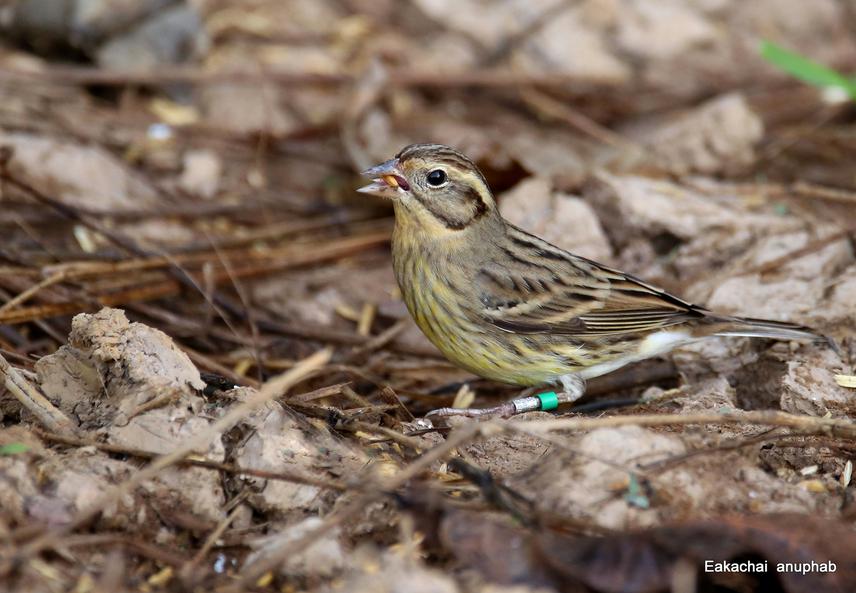Pattraporn Simla
Other projects
24 Mar 2025
Estimating Wintering Population Sizes of Yellow-Breasted Bunting (Emberiza aureola) in Potential Strongholds in Thailand
Yellow-breasted Bunting (Emberiza aureola) was once one of the most abundant birds in the world but has become a Critically Endangered species within only 17 years (2000-2017) due to rapid declines of approximately 82-90%. Most scientific reports of habitat use, and populations of this species took place in or close to the breeding areas. However, the stronghold populations in their wintering grounds are largely unknown. The population decline is likely to be driven by excessive trapping during migration and with combinations of habitat destruction, alteration of agricultural practices. Yellow-breasted Bunting (hereafter YBBU) mainly feed on seeds and rice grains. They winter in large flocks in rice fields adjacent to wetland. The alteration of rice cultivation activities can have a great impact on the number and movement of the YBBU over time.

Important evident to show that YBBU return to the same wintering site after banding in 2021.
To ensure the species survival, the information on population trends and how agricultural practices influence the habitat selection are needed. A monitoring project and action in non-breeding ranges are required to quantify the magnitude of the population and the current status of YBBU. This project aims to 1) monitoring population trend of wintering YBBU and 2) investigate how land use change affects the movement and distribution of YBBU and to identify the wintering hotspots of YBBU. This project focuses in the Kaeng Lawa wetland area where the largest wintering YBBU populations has been reported in Thailand and Southeast Asia. The main activities of the study are:
1) Field survey to estimate the population size.
2) Mapping the feeding and resting habitat and monitoring the movement in conjunction with the stages of rice field and land use change.
3) Bird banding to provide information for population monitoring along the
migration routes.
This project will provide information on how YBBU respond to habitat alteration and wintering population trend in Kaeng Lawa. The data will provide a better understanding of how the YBBU adapt to survive in human-dominated landscapes and our knowledge of migratory land birds will facilitate future research and conservation of remaining population globally. During this project implementation, we will collaboration with the Bird Conservation Society Thailand (BCST), research group of Thai Department of National Parks, Wildlife and Plant Conservation (DNP), and local administration offices. The project will also collaborate the data with YBBU counts in other countries in SE Asia, Nepal and stopover sites in China, Taiwan, and Hong Kong.
Header: Non-breeding male feeding on fallen rice grains after harvesting.